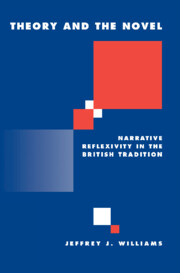Introduction
Published online by Cambridge University Press: 22 September 2009
Summary
This book begins with a basic observation: stories frequently depict the act and processes of storytelling. In some ways, this observation is not especially surprising. Novels like Tristram Shandy openly exploit this tendency, often to comic effect. Seemingly stepping out of the narrative proper, Tristram tells of the problems he is having progressing in his autobiography, since he has only managed to cover a single day of his life in three volumes. Moments like this one give a kind of wink to their audience, as if to say this is just a story and we are all in on the joke.
However, I take these moments more seriously, as more than a glitch or comic eccentricity in the narrative. In my view, they occur far too often to be accidental – in narratives ranging from Cervantes to Last Action Hero – and too prominently to be incidental – in frames, authorial intrusions, digressions, embedded stories, and so forth. In fact, I believe that these moments are not only common but explicitly foregrounded in a number of well-known texts across the tradition of the English novel, several of which I discuss here, including Tristram Shandy, Joseph Andrews, Wuthering Heights, Heart of Darkness, and Lord Jim. Adapting Hillis Miller's definition of a “linguistic moment,” I would call them narrative moments – that is, moments in which the act of narrative itself is depicted and thus thematized or called into question.
- Type
- Chapter
- Information
- Theory and the NovelNarrative Reflexivity in the British Tradition, pp. 1 - 23Publisher: Cambridge University PressPrint publication year: 1998



